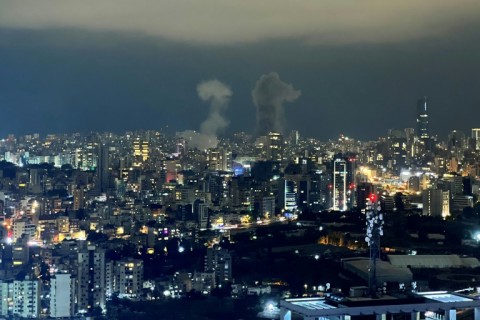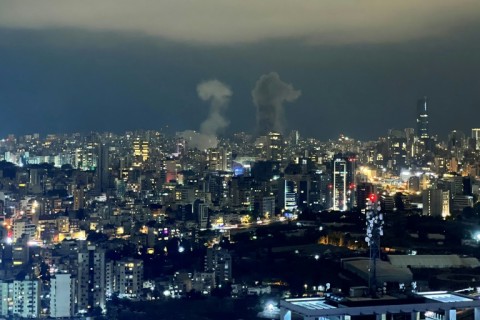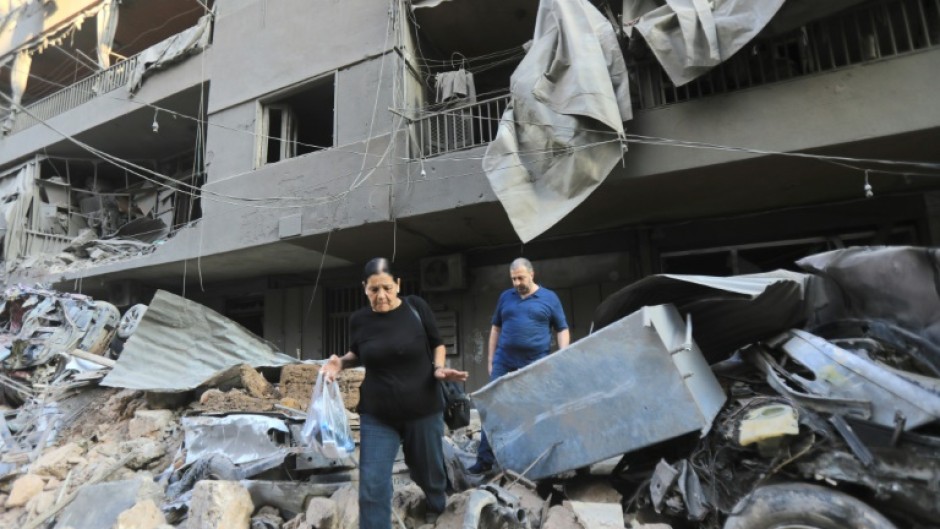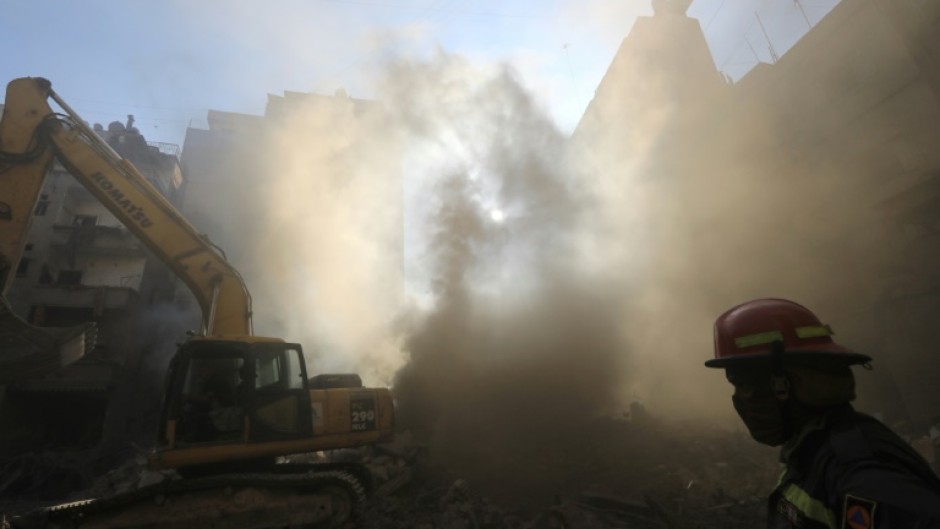Israel announced on Friday it was conducting a "thorough review" following claims that its troops injured four UN peacekeepers in Lebanon, sparking a diplomatic backlash.
UN peacekeepers patrolling the Lebanese side of the border with Israel have been thrust into the violence of the Israel-Hezbollah war that has killed more than 1,200 people in Lebanon, according to an AFP tally of Lebanese health ministry figures, and displaced a million others.
The UN peacekeeping mission said two more of its members were wounded on Friday -- after two Indonesian Blue Helmets were injured on Thursday -- leading the Israeli army to say it was "conducting a thorough review at the highest levels of command".
The Israeli statement also said the peacekeepers had been "inadvertently hurt" during fighting pitting Israeli troops against Hezbollah militants in Lebanon.
The incidents have sparked a wave of condemnation including from Israeli allies in the White House, Britain and the EU, while France on Friday said it had summoned the Israeli ambassador.
The UN force warned Friday of "very serious risks" for their Blue Helmets after explosions wounded two of them near the Israeli border.
The UN mission had on Thursday said its headquarters and nearby positions were "repeatedly hit", and that two peacekeepers had been wounded.
"These attacks constitute serious violations of international law and must cease immediately. The Israeli authorities must explain themselves," the French foreign ministry said.
The incidents came nearly three weeks into Israel's war with Hezbollah in Lebanon, which has seen Israeli warplanes conduct extensive strikes since September 23 on the Iran-backed militants' strongholds and ground troops deployed across the border.
On Friday, air raid sirens were activated across areas of northwestern Israel after 80 projectiles were fired from Lebanon, the army said.
- 'Immediate ceasefire' -
Also on Friday, Lebanese Prime Minister Najib Mikati said his government would ask the UN Security Council to issue a resolution calling for a "full and immediate ceasefire".
Calling for the Lebanese army and peacekeepers to be the only armed forces deployed in the south of the country, he said that "Hezbollah is in agreement on this issue" -- though the group has yet to comment on his speech.
Iran-backed Hezbollah is heavily armed and controls large swathes of Lebanon, and successive Lebanese governments have failed to subdue it.
Hezbollah has fought Israel numerous times in recent decades, while the weak Lebanese military has been mostly unable to deploy in many areas under the militants' control.
Lebanon's army said an Israeli strike on one of its positions in south Lebanon killed two of its soldiers on Friday.
The worst-affected areas in the war are home to majority Shiite Muslims, where Hezbollah built its support base by providing protection and services in a state long wracked by sectarianism and corruption.

But Christian villagers near the border have also been trapped in the cross-fire.
"When Israel bombards, it flies over our heads. And when Hezbollah fires back, it also whizzes by above," Christian Joseph Jarjour told AFP by phone from the border village of Rmeish.
"We're peaceful, we don't have any weapons. We've never liked war," he said.
- Beirut attack -
In Israel, people were preparing for Yom Kippur, the holiest day on the Jewish calendar which begins on Friday, though troops will continue operations against Hezbollah and Hamas.
From sundown on Friday until nightfall on Saturday, Israeli markets will close, flights will stop and public transport will halt as most Jews fast and pray on the Day of Atonement.
On Thursday, Israel appeared to target Hezbollah's security chief in air strikes on Beirut that killed 22 people, the deadliest on the centre of the capital since the conflict erupted.
In central Beirut, residents, some weeping, were checking their homes and asking for news of neighbours, after a strike on Thursday that appeared to target Hezbollah's security chief killed 22 people.
"The head of Hezbollah's security apparatus, Wafiq Safa, was targeted," a source close to Hezbollah told AFP Friday, requesting anonymity to discuss the matter.
Safa was close to Hezbollah's late leader Hassan Nasrallah, who was killed in an Israeli strike on south Beirut last month.

But people in the neighbourhood were stunned by the ferocity of the strike.
"There are a lot of families living here," many displaced from south Lebanon and who have relatives in the neighbourhood, said Bilal Othman.
"Do they (Israel) want to tell us there is no safe place left in this country?"
- Calls for de-escalation -
On Friday, US Secretary of State Antony Blinken voiced hope for a diplomatic solution that would avert a broader conflict, as he backed efforts by the state to assert itself against Hezbollah.
"It's clear that the people of Lebanon have an interest -- a strong interest -- in the state asserting itself and taking responsibility for the country and its future," he said.
Israeli Prime Minister Benjamin Netanyahu this week urged Lebanese people to rise up against Hezbollah, or risk a similar fate to the people of Hamas-run Gaza.
"Free your country from Hezbollah so that this war can end," he said.
Hezbollah began firing on Israel in support of its Palestinian ally Hamas, following the October 7, 2023 attack, the worst in Israel's history.
Israel has vowed to destroy Hamas and bring back the hostages seized by militants on October 7.
More recently, with Hamas weakened but not crushed in Gaza, Netanyahu promised to secure Israel's northern border with Lebanon, in order to allow tens of thousands of Israelis displaced from their homes by Hezbollah's cross-border fire to return.
With Lebanon deep in political and economic crisis for years, the power and influence of Iran-backed Hezbollah has become ever more entrenched in the Mediterranean country.
Israel has also promised to retaliate against Iran's missile attack, which Tehran had said was vengeance for the assassination of two of its closest allies, Hezbollah leader Nasrallah and Hamas leader Ismail Haniyeh, along with an Iranian general.
The United States has cautioned its ally Israel against attempting to target Iran's nuclear facilities and opposes striking oil installations.
burs/ser/adp
By David Stout With Lisa Golden In Beirut


